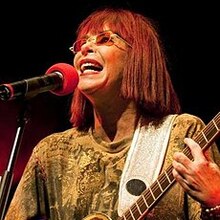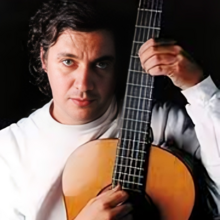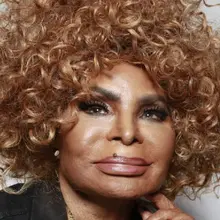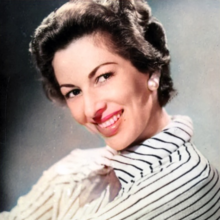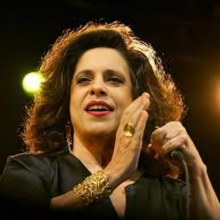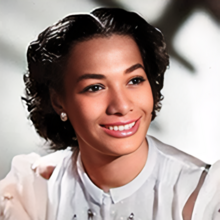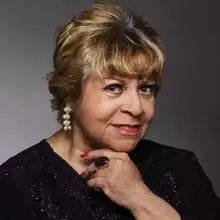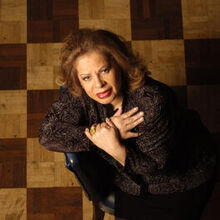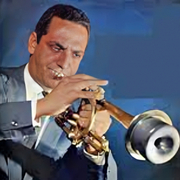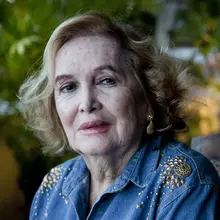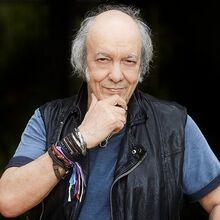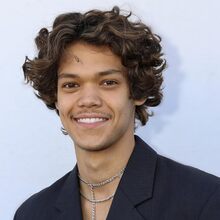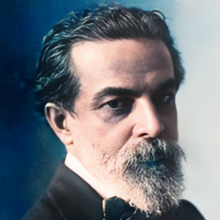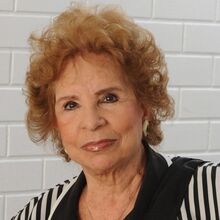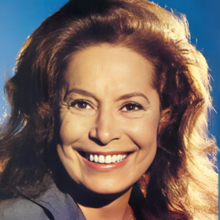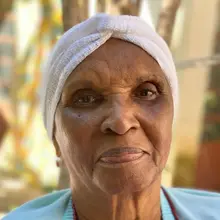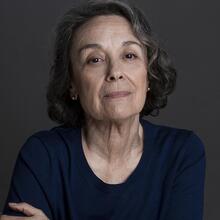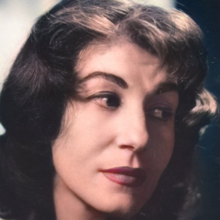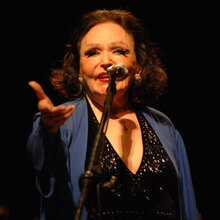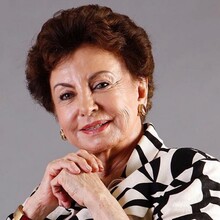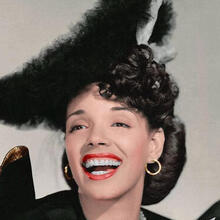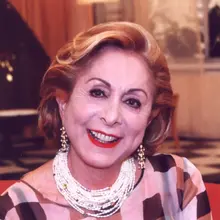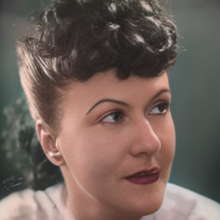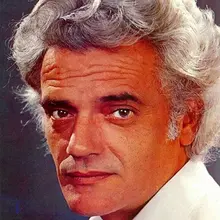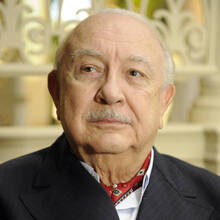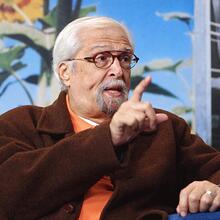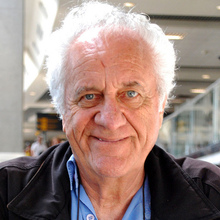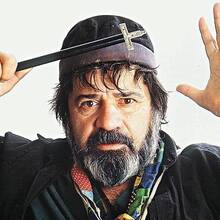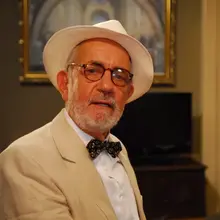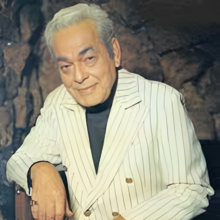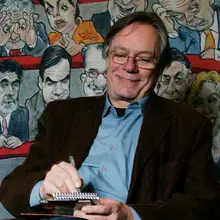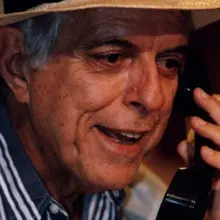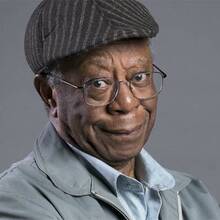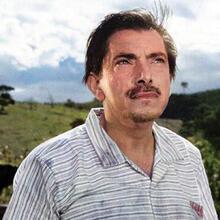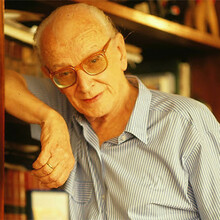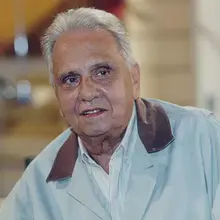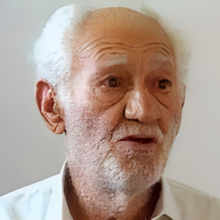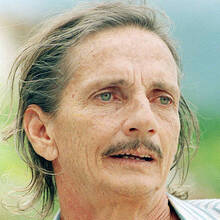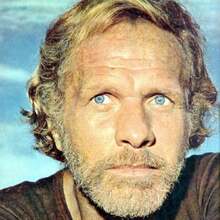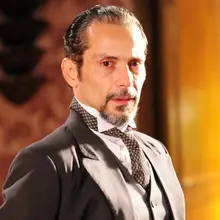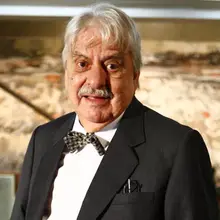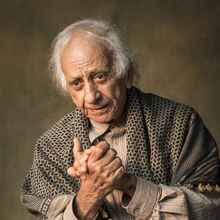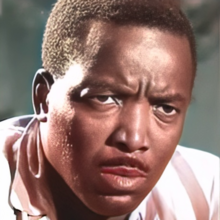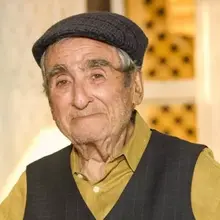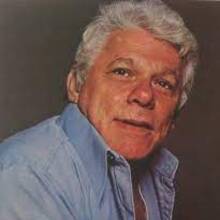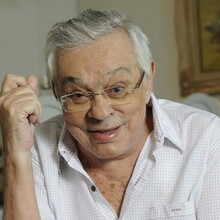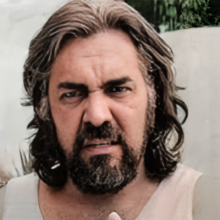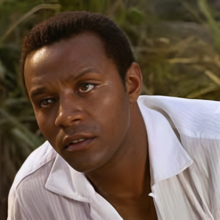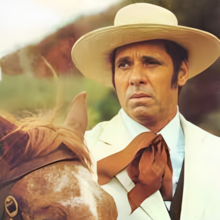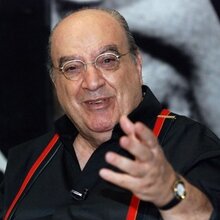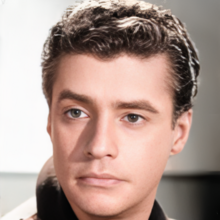 Jose Carlos do Patrocinio
1853 - 1905
Abolitionist, journalist, writer, orator
Jose Carlos do Patrocinio
1853 - 1905
Abolitionist, journalist, writer, orator
 Marilia Soares Pera
1943 - 2015
Actress, singer
Marilia Soares Pera
1943 - 2015
Actress, singer
 Alberto Nepomuceno
1864 - 1920
Brazilian classical music pioneer
Alberto Nepomuceno
1864 - 1920
Brazilian classical music pioneer
 Jorge Amado
1912 - 2001
Novelist and historian
Jorge Amado
1912 - 2001
Novelist and historian
 Joaquim Marques Lisboa
1807 - 1897
Admiral of the Imperial Brazilian Navy
Joaquim Marques Lisboa
1807 - 1897
Admiral of the Imperial Brazilian Navy
 Dionisio Azevedo
1922 - 1994
TV and theater pioneer
Dionisio Azevedo
1922 - 1994
TV and theater pioneer
 Chico Anisio
1931 - 2012
humorist and TV personality
Chico Anisio
1931 - 2012
humorist and TV personality
 Andre Franco Montoro
1916 - 1999
Governor of São Paulo, senator, and minister
Andre Franco Montoro
1916 - 1999
Governor of São Paulo, senator, and minister
 Manuel Francisco dos Santos
1933 - 1983
Expressionist xylographer
Manuel Francisco dos Santos
1933 - 1983
Expressionist xylographer
 Nelson Pereira dos Santos
1928 - 2018
Film director
Nelson Pereira dos Santos
1928 - 2018
Film director
 Sergio Vieira de Mello
1948 - 2003
UN High Commissioner for Human Rights
Sergio Vieira de Mello
1948 - 2003
UN High Commissioner for Human Rights
 Eduardo Galvao
1962 - 2020
TV and theater actor
Eduardo Galvao
1962 - 2020
TV and theater actor
 Breno Mello
1931 - 2008
theater and film actor
Breno Mello
1931 - 2008
theater and film actor
 Aurora Miranda
1915 - 2005
Singer and actress of cinema, television
Aurora Miranda
1915 - 2005
Singer and actress of cinema, television
 Rogerio Sganzerla
1946 - 2004
Director and writer of The Red Light Bandit
Rogerio Sganzerla
1946 - 2004
Director and writer of The Red Light Bandit
 Alvares de Azevedo
1831 - 1852
Poet and writer
Alvares de Azevedo
1831 - 1852
Poet and writer
 Antonio Vieira
1608 - 1697
diplomat, and master of classical Portuguese prose
Antonio Vieira
1608 - 1697
diplomat, and master of classical Portuguese prose
 Beatriz Segall
1926 - 2018
Actress of cinema, television and theater
Beatriz Segall
1926 - 2018
Actress of cinema, television and theater
 Jose Wilker
1944 - 2014
Actor, director
Jose Wilker
1944 - 2014
Actor, director
 Carmelia Alves
1923 - 2012
Singer of baião and other Brazilian genres
Carmelia Alves
1923 - 2012
Singer of baião and other Brazilian genres
 Jose Lewgoy
1920 - 2003
Actor
Jose Lewgoy
1920 - 2003
Actor
 Murilo Mendes
1892 - 1988
Poet and writer
Murilo Mendes
1892 - 1988
Poet and writer
 Joel Barcellos
1936 - 2018
TV and theater pioneer
Joel Barcellos
1936 - 2018
TV and theater pioneer
 Mario Covas
1930 - 2001
Governor of São Paulo
Mario Covas
1930 - 2001
Governor of São Paulo
 Chica Xavier
1932 - 2020
Actress and theater star
Chica Xavier
1932 - 2020
Actress and theater star
 Marielle Franco
1979 - 2018
Councillor of Rio de Janeiro
Marielle Franco
1979 - 2018
Councillor of Rio de Janeiro
 Golbery do Couto e Silva
1911 - 1987
Chief of Staff of the Presidency
Golbery do Couto e Silva
1911 - 1987
Chief of Staff of the Presidency
 Getulio Vargas
1882 - 1954
President of Brazil
Getulio Vargas
1882 - 1954
President of Brazil
 Paulo Freire
1921 - 1997
Educator and philosopher
Paulo Freire
1921 - 1997
Educator and philosopher
 Elza Soares
1930 - 2022
Samba singer and composer
Elza Soares
1930 - 2022
Samba singer and composer
 Gilberto Freyre
1900 - 1987
Sociologist and writer
Gilberto Freyre
1900 - 1987
Sociologist and writer
 Lima Barreto
1881 - 1922
Novelist and short story writer
Lima Barreto
1881 - 1922
Novelist and short story writer
 Bussunda
1962 - 2006
member of Casseta & Planeta
Bussunda
1962 - 2006
member of Casseta & Planeta
 Sergio Britto
1923 - 2011
Actor, director, presenter and writer
Sergio Britto
1923 - 2011
Actor, director, presenter and writer
 Antonio Carlos Jobim
1927 - 1994
Composer of bossa nova and Latin jazz
Antonio Carlos Jobim
1927 - 1994
Composer of bossa nova and Latin jazz
 Clarice Lispector
1920 - 1977
Novelist and short story writer
Clarice Lispector
1920 - 1977
Novelist and short story writer
 Millor Fernandes
1923 - 2012
Writer, journalist, cartoonist, humorist
Millor Fernandes
1923 - 2012
Writer, journalist, cartoonist, humorist
 Fernando Sabino
1923 - 2004
Novelist and short story writer
Fernando Sabino
1923 - 2004
Novelist and short story writer
 Jose Lutzenberger
1926 - 2002
environmental activism and organic farming
Jose Lutzenberger
1926 - 2002
environmental activism and organic farming
 Walter Hugo Khouri
1929 - 2003
Film director, screenwriter, producer
Walter Hugo Khouri
1929 - 2003
Film director, screenwriter, producer
 Paulo Jose
1937 - 2021
Actor, director and writer
Paulo Jose
1937 - 2021
Actor, director and writer
 Carlos Marighella
1911 - 1969
Politician, writer, militant
Carlos Marighella
1911 - 1969
Politician, writer, militant
 Lygia Pape
1927 - 2004
Abstract artist and co-founder
Lygia Pape
1927 - 2004
Abstract artist and co-founder
 Alberto Ruschel
1918 - 1996
acting in O Cangaceiro and other films
Alberto Ruschel
1918 - 1996
acting in O Cangaceiro and other films
 Emiliano Di Cavalcanti
1897 - 1976
Painter and illustrator
Emiliano Di Cavalcanti
1897 - 1976
Painter and illustrator
 Arthur Timotheo da Costa
1882 - 1922
scenographer, theatre designer, sculptor
Arthur Timotheo da Costa
1882 - 1922
scenographer, theatre designer, sculptor
 Jose Reis
1907 - 2002
divulgation of science and medicine
Jose Reis
1907 - 2002
divulgation of science and medicine
 Joao Gilberto do Prado Pereira de Oliveira
1931 - 2019
Guitarist, singer, and composer
Joao Gilberto do Prado Pereira de Oliveira
1931 - 2019
Guitarist, singer, and composer
 Welington de Melo
1946 - 2016
structural stability of dynamical systems
Welington de Melo
1946 - 2016
structural stability of dynamical systems
 Hugo Carvana
1937 - 2014
TV and theater pioneer
Hugo Carvana
1937 - 2014
TV and theater pioneer
 Sylvia Telles
1934 - 1966
Jazz, samba and bossa nova singer and composer
Sylvia Telles
1934 - 1966
Jazz, samba and bossa nova singer and composer
 Fab Melo
1990 - 2017
Professional basketball player
Fab Melo
1990 - 2017
Professional basketball player
 Zola Amaro
1891 - 1944
Operatic soprano
Zola Amaro
1891 - 1944
Operatic soprano
 Deodoro da Fonseca
1827 - 1892
First president of Brazil and leader
Deodoro da Fonseca
1827 - 1892
First president of Brazil and leader
 Flavio Migliaccio
1934 - 2020
TV and theater pioneer
Flavio Migliaccio
1934 - 2020
TV and theater pioneer
 Carlos Lacerda
1914 - 1977
Mayor of São Paulo and governor of São Paulo
Carlos Lacerda
1914 - 1977
Mayor of São Paulo and governor of São Paulo
 Carmen Santos
1904 - 1952
Actress and film producer
Carmen Santos
1904 - 1952
Actress and film producer
 Alda Garrido
1896 - 1970
Actress and theater star
Alda Garrido
1896 - 1970
Actress and theater star
 Nelson Rodrigues
1912 - 1980
Writer and playwright
Nelson Rodrigues
1912 - 1980
Writer and playwright
 Jorge Doria
1920 - 2013
TV and theater pioneer
Jorge Doria
1920 - 2013
TV and theater pioneer
 Rachel de Queiroz
1910 - 2003
Novelist and journalist
Rachel de Queiroz
1910 - 2003
Novelist and journalist
 Bento Goncalves da Silva
1788 - 1847
President of the Riograndense Republic
Bento Goncalves da Silva
1788 - 1847
President of the Riograndense Republic
 Julio Prestes
1882 - 1946
President-elect of Brazil
Julio Prestes
1882 - 1946
President-elect of Brazil
 Andre Reboucas
1838 - 1898
wireless communication ,radio broadcasting
Andre Reboucas
1838 - 1898
wireless communication ,radio broadcasting
 Ana Justina Ferreira Neri
1814 - 1880
Nurse
Ana Justina Ferreira Neri
1814 - 1880
Nurse
 Ayrton Senna da Silva
1960 - 1994
Formula One driver
Ayrton Senna da Silva
1960 - 1994
Formula One driver
 Joao Goulart
1918 - 1976
President of Brazil
Joao Goulart
1918 - 1976
President of Brazil
 Joffre Soares
1918 - 1996
TV and theater pioneer
Joffre Soares
1918 - 1996
TV and theater pioneer
 Elis Regina
1945 - 1982
Singer of bossa nova, MPB, and jazz
Elis Regina
1945 - 1982
Singer of bossa nova, MPB, and jazz
 Zumbi dos Palmares
1655 - 1695
Leader of Quilombo dos Palmares
Zumbi dos Palmares
1655 - 1695
Leader of Quilombo dos Palmares
 Jose Mojica Marins
1936 - 2020
Horror filmmaker and actor
Jose Mojica Marins
1936 - 2020
Horror filmmaker and actor
 Anecy Rocha
1942 - 1977
Actress of cinema, television and theater
Anecy Rocha
1942 - 1977
Actress of cinema, television and theater
 Nise da Silveira
1905 - 1999
humanizing psychiatric treatment in Brazil
Nise da Silveira
1905 - 1999
humanizing psychiatric treatment in Brazil
 Heitor Villa Lobos
1887 - 1959
Brazilian composer and classical guitarist
Heitor Villa Lobos
1887 - 1959
Brazilian composer and classical guitarist
 Jose Marcio Ayres
1954 - 2003
Primatologist and conservationist
Jose Marcio Ayres
1954 - 2003
Primatologist and conservationist
 Antonio Goncalves Dias
1823 - 1864
Poet and writer
Antonio Goncalves Dias
1823 - 1864
Poet and writer
 Paulo Gracindo
1911 - 1995
Actor, radio host and TV presenter
Paulo Gracindo
1911 - 1995
Actor, radio host and TV presenter
 Prudente de Morais
1841 - 1902
President of Brazil
Prudente de Morais
1841 - 1902
President of Brazil
 erico Verissimo
1905 - 1975
Novelist and historian
erico Verissimo
1905 - 1975
Novelist and historian
 Fabio Barreto
1957 - 2019
Film director and producer
Fabio Barreto
1957 - 2019
Film director and producer
 Vinicius de Moraes
1913 - 1980
Poet and composer
Vinicius de Moraes
1913 - 1980
Poet and composer
 Isabel Cristina Leopoldina Augusta Micaela
1846 - 1921
Heiress and regent of the Empire of Brazil
Isabel Cristina Leopoldina Augusta Micaela
1846 - 1921
Heiress and regent of the Empire of Brazil
 Monteiro Lobato
1882 - 1948
Novelist and children's literature author
Monteiro Lobato
1882 - 1948
Novelist and children's literature author
 Walmor Chagas
1930 - 2013
Actor, director, and producer
Walmor Chagas
1930 - 2013
Actor, director, and producer
 Pele
1940 - 2022
Footballer
Pele
1940 - 2022
Footballer
 Aracy Balabanian
1940 - 2023
Actress and theater star
Aracy Balabanian
1940 - 2023
Actress and theater star
 Domingos Soares Ferreira Penna
1818 - 1888
fossil and shell mound research
Domingos Soares Ferreira Penna
1818 - 1888
fossil and shell mound research
 Candido Rondon
1865 - 1958
Founder of the Indian Protection Service
Candido Rondon
1865 - 1958
Founder of the Indian Protection Service
 Lucila Nogueira
1950 - 2016
Poet and writer
Lucila Nogueira
1950 - 2016
Poet and writer
 Jardel Filho
1927 - 1983
TV and theater pioneer
Jardel Filho
1927 - 1983
TV and theater pioneer
 Humberto Mauro
1897 - 1983
film director, screenwriter, cinematographer
Humberto Mauro
1897 - 1983
film director, screenwriter, cinematographer
 Maria Esther Bueno
1939 - 2018
Professional tennis player
Maria Esther Bueno
1939 - 2018
Professional tennis player
 Leon Hirszman
1937 - 1987
Film director, producer and screenwriter
Leon Hirszman
1937 - 1987
Film director, producer and screenwriter
 Elon Lages Lima
1929 - 2017
structural stability of dynamical systems
Elon Lages Lima
1929 - 2017
structural stability of dynamical systems
 Clara Nunes
1942 - 1983
singer, researcher, Candomblé devotee
Clara Nunes
1942 - 1983
singer, researcher, Candomblé devotee
 Manuel de Abreu
1894 - 1962
Physician and scientist
Manuel de Abreu
1894 - 1962
Physician and scientist
 Josef Mengele
1911 - 1979
Nazi physician and SS officer at Auschwitz
Josef Mengele
1911 - 1979
Nazi physician and SS officer at Auschwitz
 Darcy Ribeiro
1922 - 1997
Anthropologist, historian, sociologist
Darcy Ribeiro
1922 - 1997
Anthropologist, historian, sociologist
 Joaquim Aurelio Barreto Nabuco de Araujo
1849 - 1910
Abolitionist, diplomat, politician, writer
Joaquim Aurelio Barreto Nabuco de Araujo
1849 - 1910
Abolitionist, diplomat, politician, writer
 Paulo Hermanny Jobim
1950 - 2022
Singer, guitarist, flutist, arranger, architect
Paulo Hermanny Jobim
1950 - 2022
Singer, guitarist, flutist, arranger, architect
 Atila Icrio
1921 - 2002
acting in O Cangaceiro and other films
Atila Icrio
1921 - 2002
acting in O Cangaceiro and other films
 Cartola
1908 - 1980
Singer, composer, and poet of samba
Cartola
1908 - 1980
Singer, composer, and poet of samba
 Jose Alencar Gomes da Silva
1931 - 2011
Vice president of Brazil, founder
Jose Alencar Gomes da Silva
1931 - 2011
Vice president of Brazil, founder
 Aziz Nacib Ab Saber
1924 - 2012
Geographer and professor
Aziz Nacib Ab Saber
1924 - 2012
Geographer and professor
 Adriana Prieto
1950 - 1974
Actress of theater, cinema and television
Adriana Prieto
1950 - 1974
Actress of theater, cinema and television
 Mitsuyo Maeda
1878 - 1941
Judo expert and pioneer of Brazilian jiu-jitsu
Mitsuyo Maeda
1878 - 1941
Judo expert and pioneer of Brazilian jiu-jitsu
 Ernesto Geisel
1907 - 1996
President of Brazil and leader
Ernesto Geisel
1907 - 1996
President of Brazil and leader
 Moyses Baumstein
1931 - 1991
Artist, inventor, writer, filmmaker
Moyses Baumstein
1931 - 1991
Artist, inventor, writer, filmmaker
 Teixeira Mendes
1855 - 1927
creating the national motto and flag
Teixeira Mendes
1855 - 1927
creating the national motto and flag
 Oduvaldo Vianna Filho
1936 - 1974
Writer and playwright
Oduvaldo Vianna Filho
1936 - 1974
Writer and playwright
 Paulo Caruso
1949 - 2023
political cartoonist and humorist
Paulo Caruso
1949 - 2023
political cartoonist and humorist
 Luis Carlos Prestes
1898 - 1990
Leader of the Prestes Column
Luis Carlos Prestes
1898 - 1990
Leader of the Prestes Column
 Oswaldo Loureiro
1932 - 2018
TV and theater pioneer
Oswaldo Loureiro
1932 - 2018
TV and theater pioneer
 Affonso Eduardo Reidy
1909 - 1964
Modernist architect
Affonso Eduardo Reidy
1909 - 1964
Modernist architect
 Adhemar de Barros
1901 - 1969
Mayor of São Paulo and governor
Adhemar de Barros
1901 - 1969
Mayor of São Paulo and governor
 Francisco Cavalcanti Pontes de Miranda
1892 - 1979
Jurist, professor, diplomat, writer
Francisco Cavalcanti Pontes de Miranda
1892 - 1979
Jurist, professor, diplomat, writer
 Lygia Clark
1928 - 2020
Abstract artist and inventor
Lygia Clark
1928 - 2020
Abstract artist and inventor
 Roberto Farias
1932 - 2018
Film director, producer and screenwriter
Roberto Farias
1932 - 2018
Film director, producer and screenwriter
 Tarsila de Aguiar do Amaral
1886 - 1973
painter
Tarsila de Aguiar do Amaral
1886 - 1973
painter
 Adolfo Lutz
1855 - 1940
tropical medicine and zoology
Adolfo Lutz
1855 - 1940
tropical medicine and zoology
 Chico Xavier
1910 - 2002
Spiritist writer and psychographer
Chico Xavier
1910 - 2002
Spiritist writer and psychographer
 Floriano Peixoto
1839 - 1895
President of Brazil
Floriano Peixoto
1839 - 1895
President of Brazil
 Carlos Drummond de Andrade
1902 - 1987
Poet and writer
Carlos Drummond de Andrade
1902 - 1987
Poet and writer
 Saint Anthony
1739 - 1822
Founder of the Conceptionist Sisters
Saint Anthony
1739 - 1822
Founder of the Conceptionist Sisters
 Tristao de Alencar Araripe
1821 - 1908
Judge and government minister
Tristao de Alencar Araripe
1821 - 1908
Judge and government minister
 Milton Goncalves
1933 - 2022
TV and theater pioneer
Milton Goncalves
1933 - 2022
TV and theater pioneer
 Zuzu Angel
1921 - 1976
Fashion designer
Zuzu Angel
1921 - 1976
Fashion designer
 Emperor Pedro II
1825 - 1891
Emperor of Brazil
Emperor Pedro II
1825 - 1891
Emperor of Brazil
 Araken Peixoto
1930 - 2009
Singer and trumpeter of jazz, samba and bossa nova
Araken Peixoto
1930 - 2009
Singer and trumpeter of jazz, samba and bossa nova
 Leonel Brizola
1922 - 2004
Governor of Rio Grande do Sul and Rio de Janeiro
Leonel Brizola
1922 - 2004
Governor of Rio Grande do Sul and Rio de Janeiro
 Bibi Ferreira
1922 - 2019
Actress and theater star
Bibi Ferreira
1922 - 2019
Actress and theater star
 Hebe Camargo
1929 - 2012
TV host, singer and actress
Hebe Camargo
1929 - 2012
TV host, singer and actress
 Jose Bonifacio de Andrada e Silva
1763 - 1838
Minister of the interior and of foreign affairs
Jose Bonifacio de Andrada e Silva
1763 - 1838
Minister of the interior and of foreign affairs
 Norberto Odebrecht
1920 - 2014
Founder of Odebrecht Group
Norberto Odebrecht
1920 - 2014
Founder of Odebrecht Group
 Eduardo Campos
1965 - 2014
Governor of Pernambuco
Eduardo Campos
1965 - 2014
Governor of Pernambuco
 Aristides Leao
1914 - 1993
experimental physicist
Aristides Leao
1914 - 1993
experimental physicist
 Eurico Gaspar Dutra
1907 - 1996
President of Brazil and leader
Eurico Gaspar Dutra
1907 - 1996
President of Brazil and leader
 Graciliano Ramos
1892 - 1953
Novelist and short story writer
Graciliano Ramos
1892 - 1953
Novelist and short story writer
 Aluisio Azevedo
1843 - 1899
Novelist and historian
Aluisio Azevedo
1843 - 1899
Novelist and historian
 Leopoldo Nachbin
1922 - 1993
structural stability of dynamical systems
Leopoldo Nachbin
1922 - 1993
structural stability of dynamical systems
 Antonio Ermirio de Moraes
1928 - 2014
Chairman and CEO of Votorantim Group
Antonio Ermirio de Moraes
1928 - 2014
Chairman and CEO of Votorantim Group
 Roberto Marinho
1904 - 2003
Founder and owner of Grupo Globo
Roberto Marinho
1904 - 2003
Founder and owner of Grupo Globo
 Grande Otelo
1915 - 1993
Actor, comedian and singer
Grande Otelo
1915 - 1993
Actor, comedian and singer
 Astrud Gilberto
1940 - 2023
Bossa nova singer and songwriter
Astrud Gilberto
1940 - 2023
Bossa nova singer and songwriter
 Jayme Tiomno
1920 - 2011
divulgation of science and medicine
Jayme Tiomno
1920 - 2011
divulgation of science and medicine
 Joaquim Jose da Silva Xavier
1746 - 1792
Leader of the Inconfidência Mineira
Joaquim Jose da Silva Xavier
1746 - 1792
Leader of the Inconfidência Mineira
 Janio Quadros
1917 - 1992
President of Brazil
Janio Quadros
1917 - 1992
President of Brazil
 Eneas Carneiro
1938 - 2007
Founder and leader of PRONA
Eneas Carneiro
1938 - 2007
Founder and leader of PRONA
 Maria d'Apparecida
1926 - 2017
Abstract painter
Maria d'Apparecida
1926 - 2017
Abstract painter
 Erasmo Carlos
1941 - 2022
Singer and composer
Erasmo Carlos
1941 - 2022
Singer and composer
We Need -- admin in



